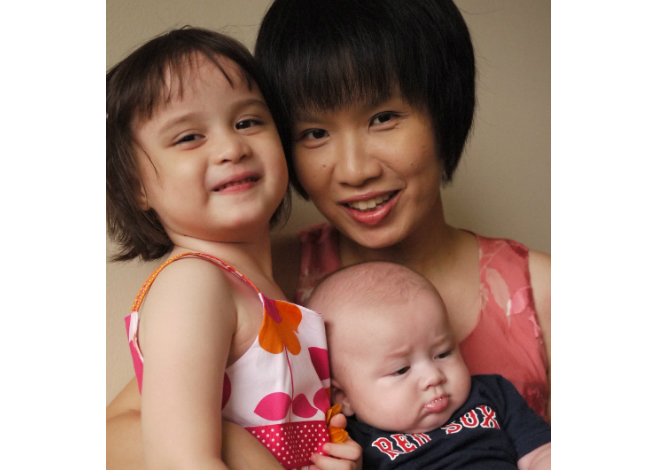“How Many Times Can I Fail Before I’m Considered a Failure?”
06 Dec 2016

Sher-li Torrey, a career coach by training and a mother of two, shares her views on failing. She says parents should allow their kids to take risks and let them experience setbacks early in life.
The fear of failure is something that Sher-li Torrey often encounters in her conversations with students.
The Founder and Director of Mums@Work, a career portal that offers flexi-work solutions for mothers, says, “If the first, second or even third job you have isn’t what you’re looking for, it doesn’t mean that they’re failures. You have to think of how each job has developed your skills and helped you discover what you value. I always see them as learning points in life.”
This is the advice that Mrs Torrey wants students to walk away with at the end of the Education and Career Guidance (ECG) talks she conducts in schools.
Mrs Torrey is no stranger to the idea of “failure” and self-doubt. In her mid-20s, she had left her job at IE Singapore to head to northeast Japan to teach English to high school kids. She didn’t speak any Japanese, but had decided to take the plunge to gain exposure to other cultures. Her father was against her decision and at times, she had doubted her move, particularly when she heard from her peers who were moving up the ranks in their careers.
It’s not failure; it’s time to try something new
“When people say something is a failure, it’s when they think they are stuck,” Mrs Torrey says. She remembers a Normal Technical student who asked her whether he would get a job and have a successful career. He wasn’t hopeful about his future at that point in his life. Mrs Torrey’s advice to him was that he should think about the goals he can work towards instead of focusing on what he didn’t achieve.
“If you’re feeling stuck, ask yourself, ‘Am I really stuck or I just think that I am?’” Mrs Torrey says. What if you shift your mindset and start looking for an opportunity to move out?”
Flying without fear of failure
What can parents do to nurture kids who are ready to bounce back after failure?
Mrs Torrey likens the challenge of parenting to flying a kite. If you want the kite to fly high, you need to loosen the string. When the wind changes, the kite may dip but you can always pull back to prevent it from falling.
While finding the right balance is not easy, says Mrs Torrey, who has a daughter in Primary 2 and a four-year-old son, here are some of her suggestions for nurturing kids who are resilient and not afraid to fail:
Allow your kids to experience setbacks or missteps early in life. As parents, it may be hard for you to watch your kids struggle, but you’re doing them a favour. Kids who learn to overcome challenges at a young age grow into resilient teenagers and adults.
Mrs Torrey recalls how her daughter had to make an impromptu presentation in Chinese class and it was a “nightmare”. Some parents wanted time for students to prep for these presentations to protect their children from embarrassment. But Mrs Torrey decided to speak with her daughter more frequently in Chinese at home. Over time, her daughter’s Chinese improved and she was able to make impromptu presentations with confidence.
Recognise that it’s their life not yours. Parents are too quick to tell their children what to do. “When my daughter told me she wanted to play the piano, I told her to pick up the violin as it was something I would have done.” One way to avoid falling into this trap, Mrs Torrey says, is to think of your own career path and what you would have done differently. Ask yourself: Are you imposing your dreams on your child?
Find a middle path. What if your child’s dream seems unrealistic to you? A polytechnic lecturer told Mrs Torrey that he was discouraging his son from wanting to be an opera singer because “he can’t sing for nuts”. Mrs Torrey’s advice is that parents strike a balance between their desires and their kids’. Encourage children to pursue varied interests instead of telling them what’s not going to work out. “So, if opera singing doesn’t work out, he’ll have a backup path. Or he could prove you wrong and succeed.”
It’s not always about getting the answers right. Before becoming a full-time “mumpreneur”, Mrs Torrey was head of the postgraduate team at the Office of Career Services at the Singapore Management University (SMU). She shares that at group interviews, some students would be so fixated on giving the right answers, they would not speak up unless they were sure. This didn’t work in their favour. As Mrs Torrey points out, employers are looking for candidates who can think on their feet, are not afraid to try something new, and who have tenacity and can bounce back after a setback.
Know when to step in. When Mrs Torrey’s daughter came home with a score of one out of 10 for her Maths test and wasn’t even bothered by it, she knew she had to talk to her. Her daughter said that she had no interest in the subject. Instead of making her daughter do more practice questions, she found ways to teach her Maths through games and puzzles. Mrs Torrey’s advice is that before you jump into solving the problem, talk to your kid and find out what the issue is.
Don’t feel guilty about letting your child fail. You are not pulling the rug out from under their feet. You’re allowing small areas of risk-taking in their growing-up years so that they’re able to better identify and assess what’s at stake when they make decisions later in life.
But are there failures that you can’t afford? “There’ll be ones that are very painful,” Mrs Torrey says. “But I have seen that successful people are usually the ones who find the strength in them to say, ‘I’ll find a way to pick myself up.’”

.jpg)



